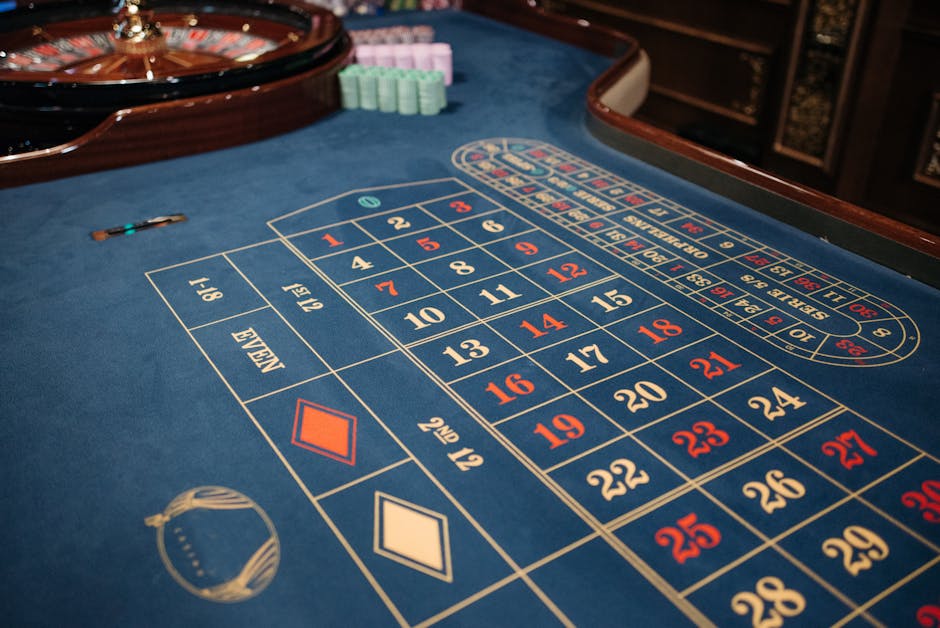Intro: Why Live Dealer Games Are a Different Beast
The Rise of Live Dealer Games
Over the past few years, live dealer casino games have moved from novelty to necessity in the online gaming space. Players are no longer satisfied with static, computer-generated simulations. Instead, they’re seeking dynamic tables, real-time interactions, and an authentic casino feel—without leaving home.
Why the surge in popularity?
- Human interaction: Live dealers create a social atmosphere that mimics land-based casinos.
- Transparency: Watching the dealer shuffle, deal, and spin builds trust.
- Entertainment value: The experience feels more like watching a live show than spinning a digital slot.
Real-Time Play Meets Real Strategy
Unlike random number generator (RNG) games where outcomes are purely automated, live dealer games demand real-time decision-making. You’re not only playing against odds—you’re reacting to a live situation with seconds to decide. That adds both complexity and thrill.
What changes in live settings?
- Decisions are time-bound—no pausing to think
- Dealers follow strict procedures players must adapt to
- Interacting with other players can influence pace and flow
The Immersion Factor: More Than Just Visuals
Live dealer games are more immersive than their digital counterparts for a few reasons:
- Multi-camera angles keep the action flowing and visibly legit.
- Live chat allows you to interact with dealers and fellow players.
- Professional dealers bring charisma, pacing, and human unpredictability back into the game.
But this immersion also makes things more demanding:
- You need stronger focus and faster thinking
- Emotional control becomes critical—no rage-quitting in live rooms
- Familiarity with rules is expected, not optional
In short, live dealer games blend the best of online convenience with the pressure and excitement of real-world casinos. It’s a step up for any player looking to sharpen their edge—and their experience.
Know the Terrain: Pick the Right Game
Live dealer games aren’t created equal. Each one brings its own rhythm, risk, and rules. Knowing the difference isn’t optional—it’s the first step to not losing your shirt.
Start with Blackjack. It’s fast, tactical, and rewards solid decisions. If you know basic strategy cold, it’s one of your best shots at tilting the odds. Pace is brisk but manageable, and bets can be kept conservative. Good for players who like calculated moves and don’t mind thinking on their feet.
Roulette is more about variance and vibe. One wheel, many ways to bet: inside, outside, red/black, odd/even. The pace is slower, giving room to breathe—though big swings are normal. It’s a solid fit if you like the ritual of placing chips and watching the spin, not obsessing over every decision.
Baccarat is deceptively simple. You pick: Player, Banker, or Tie. That’s it. But it’s laser-focused and moves fast. The house edge is low on Banker bets, which is why savvy players stick there. Easy to follow, but the rapid pace can test your discipline—especially when it feels like a streak is coming.
Poker (usually Texas Hold’em variants) is in a league of its own. It’s slower, more strategic, and deeply psychological. Here, you’re not just playing the cards—you’re playing the people. Bluffing, reading, adapting. Perfect for players who want a mental battle, not just a betting game.
Matching your risk tolerance to the game is key. Want lower volatility and some control? Try Blackjack or Banker bets in Baccarat. Prefer swingier stakes and big payout potential? That’s Roulette. Want full throttle mind games? Pull up a Poker seat. The best game is the one that fits your tempo—and respects your limits.
Strategy, Not Just Luck
Walking into a live dealer game isn’t like clicking autoplay on a slot. These tables move fast, and there’s no pause button. First rule: know your manners. Don’t stall the table figuring out how to double down. Be ready, be respectful, and don’t argue with the dealer—they’re the host, not your punching bag.
Decision-making in real time is part gut, part groundwork. You’ve got seconds to act, and distractions kill bankrolls. Watching a few rounds before joining can sharpen your instincts. You’ll get a feel for table speed, betting rhythms, and dealer style. Treat it like reconnaissance.
Now for core strategies:
Blackjack is the most strategic of the bunch. Basic strategy—based on math, not myth—is your best friend. Hit, stand, double, or split based on your hand vs. the dealer’s upcard. Card counting? Don’t waste time. Most online live tables shuffle too often or use continuous shufflers, making counting useless.
Roulette is seductive because it feels predictable. It’s not. Betting systems like Martingale (double after every loss) can drain your chips fast. There’s no memory in physics. Best move: manage your unit sizes, mix outside bets for survival, and resist chasing losses.
Baccarat thrives on simplicity. Don’t overthink it. The house edge is lower on the Banker bet—even with the small commission—so stick with it. Player bets are fine, but betting ties? Skip it. It’s a flashy payout with garbage odds.
As for reading the flow? Pros watch trends without getting superstitious. Sure, a pattern can run hot for a while. But real skill is recognizing when momentum shifts and adapting your bets, not blindly following streaks. Keep cool. Trends are info, not prophecy.
Mastering live dealer games means stepping up with a plan—and keeping your head clear when the stakes rise. Luck comes and goes. Discipline sticks.
Tech Tips for Smooth Play
Live dealer games aren’t just digital card tables—they’re high-stakes video streams where every second counts. A spotty internet connection can ruin not only your experience, but also your bets. Lag means missed decisions, bad reads, or worse—getting kicked mid-hand. If you’re serious about live games, hardwire your setup or sit as close to your router as possible. Wi-Fi drops cost money.
Then there’s the platform itself. Not all online casinos are built equal. Some run clunky software that freezes or crashes under pressure. Choose sites with proven track records—stability, responsive operators, and good dealer reviews matter. A clean, intuitive interface also helps you make quicker, smarter decisions in real time. You don’t want to be fumbling through tabs while the dealer’s already dealt.
Lastly, dial in your settings. Maximize video quality so you can read gestures and cards clearly. Customize your chip display to make betting intuitive. Cut background noise through sound controls. These seem minor until you’re splitting tens with $100 on the line. Smooth play isn’t just a luxury—it’s part of the strategy.
Bankroll Management in Live Rooms
Live dealer games move fast—and if you’re not paying attention, so does your money. Unlike digital slots or turn-based poker, live casino tables don’t wait for you to catch your breath. It’s easy to lose track of your budget in a string of rapid hands or spins. That’s why walking into the room with a clear bankroll strategy isn’t just smart—it’s vital.
Start by picking the right betting system. Fixed stake betting—where you wager the same amount every round—keeps emotions in check and your balance steady. Progressive systems, where you increase or decrease your bet depending on wins or losses, can feel more exciting but carry more risk. They’re not magic tricks—they’re math. Know what you’re getting into.
The toughest part? Knowing when to stop. Discipline beats hope every time. If you’re chasing losses or convincing yourself that one more round will turn it all around, you’re not in control. Set hard limits and walk away when you reach them. The best players don’t win the most hands—they just know when to quit.
Playing live should be sharp, intentional, and measured. That’s how you make bankrolls last—and how you stay in the game for the long run.
Mind Over Money: Playing Smart in Real Time
Live dealer games add a human element that RNG tables can’t replicate. There’s a real person dealing cards, taking bets, and interacting with you—sometimes even calling you out if you’re too slow. That pressure? It’s real. And if you’re not mentally dialed in, your game will suffer fast.
The key isn’t just knowing the strategy or odds—it’s staying calm when your adrenaline spikes. A losing streak in front of real people can mess with your head more than numbers on a screen ever will. If you panic, you’ll overbet. If you chase losses, the room eats you alive.
The best players treat live tables like a mental gym. They focus on what they can control: solid decisions, consistent bets, and a clear head. Winning is nice, but discipline is the long game. Psychology matters as much as math here. If you’re emotionally tilting, take a break.
A deeper dive into this mindset shift is in The Psychology of Online Gaming – Playing Smart. It’s worth the read if you’re serious about leveling up.
Bonus: Pro Behavior that Gets Results
Before you even touch the chips, watch. Observing live dealer games isn’t wasted time—it’s a quiet kind of training. You get the rhythm of the dealer, the betting flows, and who at the table is playing with discipline. Patterns emerge. Reactions matter. And once you’re in, you’re not guessing—you’re tuned in.
Tipping is another silent signal. You’re not buying wins, but you’re showing respect. A small, timely tip—after a good shoe or as you leave a table—can speak volumes. It says you see the dealer as a pro doing a job, not a button on a screen. It costs little but builds reputation fast, especially if you plan to return.
Then there’s speed. Some rush in like it’s a sprint. Others drag the table down with endless pauses. Respect the pace. Know yours, and match the room’s energy. If you need to recalibrate or think slow, step away and spectate a bit. It’s not about being fast or slow—it’s about fitting into the flow without breaking it. That’s how pros earn quiet respect and cleaner wins.
Final Take
Live dealer games aren’t about chasing luck—they’re about reading the room, knowing the math, and keeping your head clear when the stakes rise. Fast hands don’t win here—focused minds do. These games favor players who treat the table like a craft, not a gamble.
Strategy comes first. Before you click in, you should know how you’re going to play, what your limits are, and when you’re walking away. Even great players lose hands—it’s the long game that matters. Stay calm and play with purpose. Panic shows. So does discipline.
If you want mastery, you don’t wish for it. You build it. Learn the rules. Watch the pros. Review your plays. The edge doesn’t come from luck—it’s carved out through steady practice, clear thinking, and knowing when to sit out. In a live dealer room, patience isn’t just a trait—it’s a tactic.



